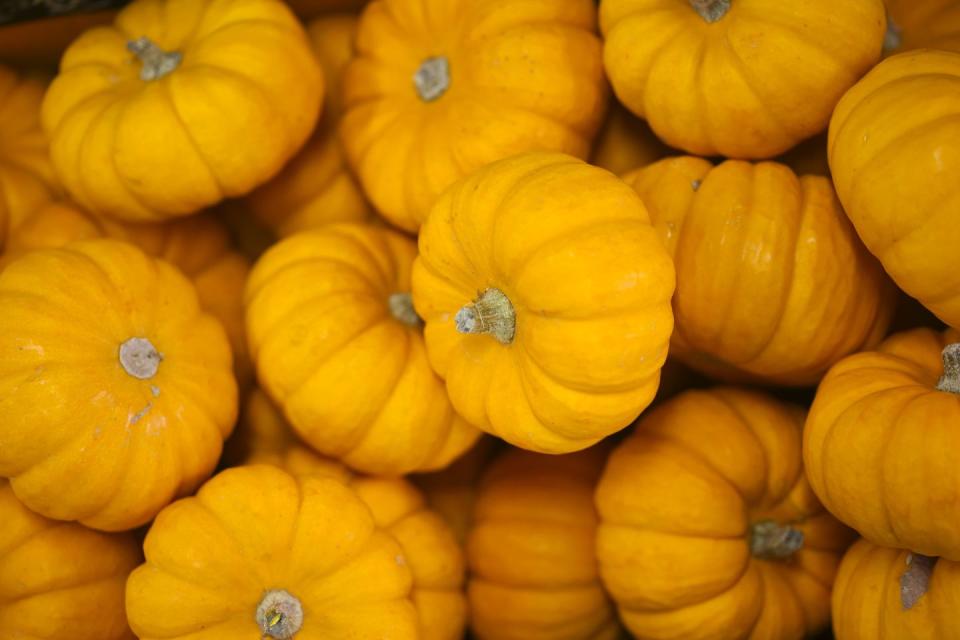This Might Sound Crazy, But Pumpkin Is a Fruit—Here's Everything You Need to Know

While pumpkin may be one of the most beloved fall foods, you can be forgiven for not knowing whether pumpkin is a fruit or a vegetable. Whether you love pumpkin for your blue-ribbon pumpkin pie recipe every Thanksgiving, crave it for your near-perfect pumpkin bread recipe, or let it serve as the key ingredient in your go-to fall drink—the fan-favorite pumpkin spice latte—pumpkin is as ubiquitous with fall as any other food. But is pumpkin a fruit or vegetable?
From starring roles in savory dishes like pumpkin pasta recipes and velvety pumpkin soup recipes, pumpkin is incredibly versatile, which might make deciding the fruit vs. veggie question seem even more confusing. But because it can't be both, let's get to the root of it.
The short answer to this oft-debated question is that (drum roll...) pumpkin is a fruit. At least that's what science tells us.
What makes pumpkin a fruit?
According to Encyclopedia Britannica, fruit is defined "in its strict botanical sense" as "the fleshy or dry ripened ovary of a plant, enclosing the seed or seeds."
Frankly—and at the risk of being labeled as pumpkin conspiracy theorists—we're here to confess that we're just not buying it. Sure, fine, we get it. Pumpkin does fit that scientific encyclopedic description to a tee. Fleshy: check. Contains seeds: check. But does that really mean we should run around calling our round jack-o-lantern friends fruit?
One last thing: If pumpkins are fruit, that would mean practically anything with an enclosed seed would qualify as a fruit, right? We're looking at you, avocados, olives, peppers, and beans. What's that, you say? All those foods are fruits, too? Mind. Blown.
What's the difference between a gourd and a pumpkin?
The thing we call a pumpkin is, in fact, a type of squash. But it's also a gourd, mainly due to the fact that it's used as both an ingredient and as a decorative piece.
Here's the gist of what you should know: Many squashes are gourds. But not all gourds are squashes.

Gourds are usually smaller and harder-skinned, and are more often used for decoration than as a cooking ingredient. But squash (aka pumpkins) and gourds both belong to the Cucurbitaceae family, which includes almost 1,000 species, including the winter and summer squashes you know and love, as well as cucumbers, watermelon, honeydew, and more.
So are gourds fruit?
Yes, all gourds are fruit. In fact, all the name really means is that the specific flowering plant species to which it refers often (but not always!) share a hard, dried-out shell. We repeat: All gourds are fruits.

Is pumpkin a berry?
You're one step ahead of us. But, yes. A pumpkin is technically a berry. The word "berry" is define as "simple, fleshy fruit that usually has many seeds" and actually encompasses a whole lot more than you may have previously thought. Pumpkins aren't the only surprising member of this delicious family: Under that definition, watermelon, cucumbers, bananas, and tomatoes are also berries.
You Might Also Like

